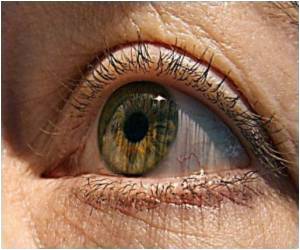Researchers have found that loss of an anti-aging gene induces retinal degeneration and might contribute to age-related macular degeneration, the major cause of blindness in elderly people.

Klotho, a hormone that is synthesized and secreted by some organs and tissues, is being studied worldwide for its anti-aging properties. A Japanese researcher discovered 15 years ago that when Klotho is mutated, a mouse that should live two years survives for only two months. Transgenic mice that overexpress the Klotho gene have a longer-than-expected lifespan.
"We found four important functions Klotho provides in the human retina, which leads us to believe that the gene is crucial to the health of this light sensitive tissue," says the study's senior investigator, Nady Golestaneh, PhD, assistant professor of ophthalmology, neurology, biochemistry and molecular & cellular biology at GUMC.
They found that Klotho increases the activity of genes that synthesize the light absorbing visual pigments in the retinal cells. Klotho also increases the expression of genes that protect against the oxidative stress known to damage the retina, and which can lead to dry macular degeneration. Klotho inhibits the vascular endothelial growth factor and therefore, might play an important role in inhibiting the overgrowth of blood vessels in the eye, a major cause of wet macular degeneration.
Klotho also regulates phagocytosis of the outer segment of photoreceptors in the retina. This process allows the photoreceptors to renew themselves, and if that function is abolished, the photoreceptors degenerate and die causing blindness.
"For these reasons, we believe Klotho might be an interesting therapeutic target for age-related macular degeneration," Golestaneh says. "Gene therapy or cell therapy might be able to induce new expression of Klotho in the aging retina."
Advertisement
Advertisement















